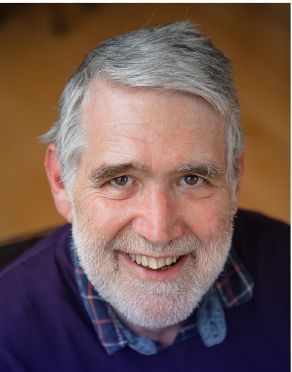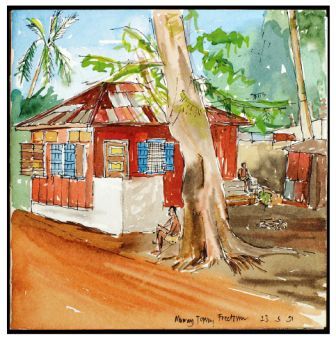British Council – 75 years in Sierra Leone
I was delighted when Tony Reilly asked me to write a few words on the occasion of the British Council’s 75th Anniversary in Sierra Leone.
I have had a long association with Sierra Leone. My younger brother and sister were both VSO teachers in the seventies, one based in Magburaka and the other in Sumbya. They had very happy times there and made deep friendships which last to this day.
Later, as Director of VSO, I had to deal with the kidnapping by the RUF in 1994 of two of our volunteers who were working in Kabala. They were made to walk bare-foot at night to the south of the country where they were held for over five months, along with a large number of Sierra Leoneans, and it was a very anxious time. I vividly remember an extremely difficult encounter with President Valentine Strasser who was considering a military intervention that would almost certainly have resulted in the deaths of all of the hostages and my job was to try to dissuade him from this course of action. The VSO Director in Sierra Leone at this time was Gladys Carroll, a remarkable woman who became a very good friend and who, very sadly, passed away last year.
My next visit to Freetown was in March 2004, as the then Director-General of the British Council, when Sierra Leone was emerging from a decade of bloody warfare and mayhem which had devastated the country and killed or maimed tens of thousands of its people. Now there was peace, stability, and the Salone peoples’ determination, with the support of the UK and other friends, was to rebuild the country as a well-governed and prosperous democracy.
It was an appropriate time to celebrate the British Council’s Diamond Jubilee. The British Council, founded in the UK by Royal Charter in 1934, had opened in four West African cities between 1943 and 1944, setting up offices and libraries in Lagos, Accra, Freetown and Bathurst. Its purpose has always been to win recognition for the UK’s ideas, values and achievements, and nurture lasting, mutually beneficial relationships with partner countries such as Sierra Leone.
The Council is, rightly, very proud of its West Africa operations, which are characterised by a close relationship with the people of this region. This is especially evident in Sierra Leone where the Council has been one of the cultural and educational centres of the City of Freetown for 75 years, and for generations of young students.
My packed and memorable programme for the Jubilee had been organized by a very dedicated and effective team of British Council staff, led by the inimitable Rajiv Bendre. It included visits to schools and to the University, to see the then-newly refurbished Law Courts and to meet groups of amazingly talented young leaders. I saw the work of the 50/50 Group in furthering women’s role in governance and performances by talented drama and dance groups at the Council’s auditorium – then, as now, one of the most popular and well-managed venues in Freetown for young artistes and performers.
I was priviledged to meet and hear from President Kabbah himself how the country was making enormous progress in governance, law-and-order and education after the devastation of the ‘rebel war’. It was touching to hear the President speak about his own experience of London as a young scholar supported by the British Council. The President told me that a British Council student support officer in London had taught him to swim!
And I was able to personally thank our Sierra Leonean national staff for their bravery, dedication and hard work in standing by the British Council during the worst years of the war, and returning to the Council to help rebuild Sierra Leone.
I was even able to snatch some free time to indulge my passion and hobby – painting. Murray Town features in my paintings as one of my favourite works.
The highlight of my visit was the City of Freetown showing its appreciation of the British Council’s work by making me a Freeman of the City, in a grand ceremony which nonetheless had the close personal and human touch which marks such events in West Africa. This signal honour, rarely given to foreigners, demonstrated the love and regard the people of Freetown have for the UK, and especially for the British Council.
The common factor in all its 75 years work has been the British Council’s role in linking the people of this country with people in the UK. With no involvement in politics or commerce, the Council is seen as an integral part of the educational and cultural life of the City of Freetown, an, happily, taken for granted by Freetonians as “fambul”.
Sir David Green, KCMG CVO
Stay with Sierra Express Media, for your trusted place in news!
© 2019, https:. All rights reserved.








